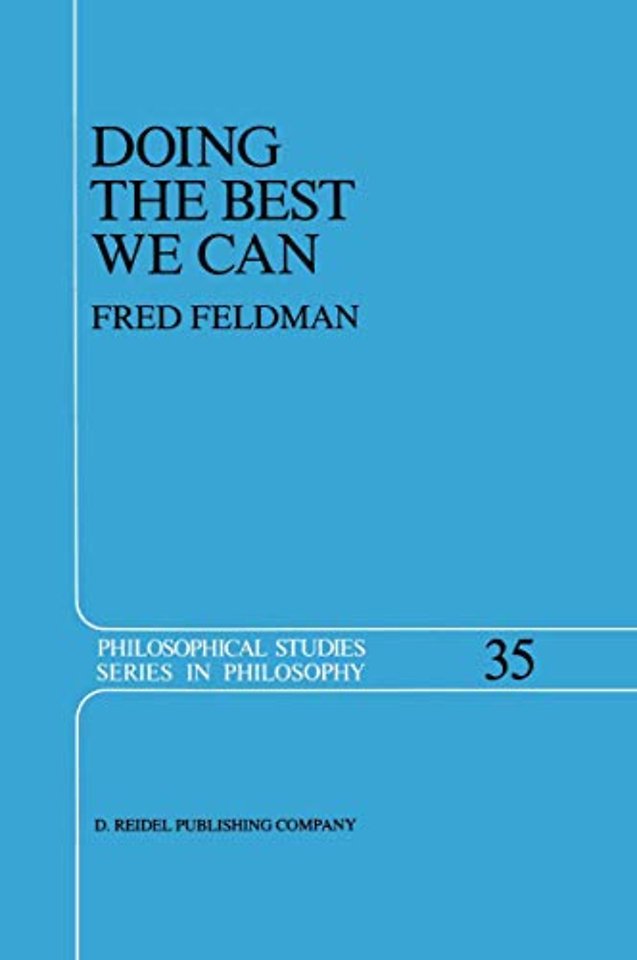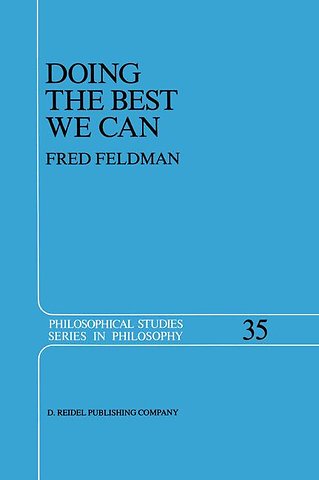Doing the Best We Can
An Essay in Informal Deontic Logic
Samenvatting
Several years ago I came across a marvelous little paper in which Hector-Neri Castaneda shows that standard versions of act utilitarian l ism are formally incoherent. I was intrigued by his argument. It had long seemed to me that I had a firm grasp on act utilitarianism. Indeed, it had often seemed to me that it was the clearest and most attractive of normative theories. Yet here was a simple and relatively uncontrover sial argument that showed, with only some trivial assumptions, that the doctrine is virtually unintelligible. The gist of Castaneda's argument is this: suppose we understand act utilitarianism to be the view that an act is obligatory if and only if its utility exceeds that of each alternative. Suppose it is obligatory for a certain person to perform an act with two parts - we can call it 'A & B'. Then, obviously enough, it is also obligatory for this person to perform the parts, A and B. If act utilitarianism were true, we appar ently could infer that the utility of A & B is higher than that of A, and higher than that of B (because A & B is obligatory, and the other acts are alternatives to A & B).
Specificaties
Inhoudsopgave
Net verschenen
Rubrieken
- aanbestedingsrecht
- aansprakelijkheids- en verzekeringsrecht
- accountancy
- algemeen juridisch
- arbeidsrecht
- bank- en effectenrecht
- bestuursrecht
- bouwrecht
- burgerlijk recht en procesrecht
- europees-internationaal recht
- fiscaal recht
- gezondheidsrecht
- insolventierecht
- intellectuele eigendom en ict-recht
- management
- mens en maatschappij
- milieu- en omgevingsrecht
- notarieel recht
- ondernemingsrecht
- pensioenrecht
- personen- en familierecht
- sociale zekerheidsrecht
- staatsrecht
- strafrecht en criminologie
- vastgoed- en huurrecht
- vreemdelingenrecht

